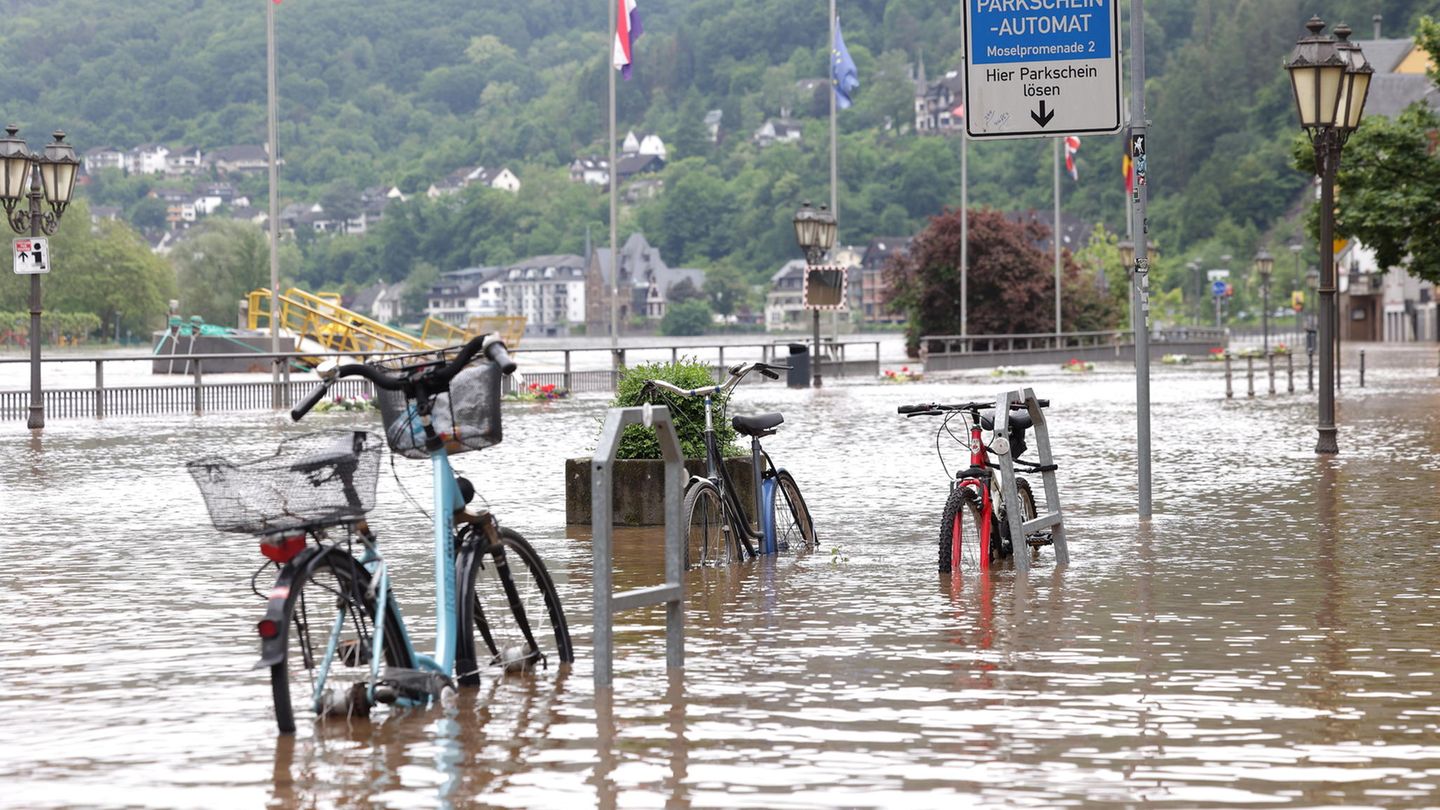Following the recent floods in Germany, discussions about compulsory insurance against natural hazards are becoming louder. What would its introduction mean for consumers?
The recent floods and the resulting damage are fueling the discussion about compulsory insurance against natural hazards. On June 20, the state premiers will discuss the matter with Chancellor Olaf Scholz (SPD) in Berlin. A spokeswoman for the Federal Ministry of Justice said this on Wednesday. The group is discussing the results of four meetings of a relevant working group. But what would compulsory insurance for natural hazards mean?
What are natural hazards anyway?
Natural damage is damage caused by nature. This includes damage caused by floods, storms or landslides. Although it is generally not possible to establish a direct causal link between storms and climate change, scientific findings show that the probability and intensity of extreme weather events is increasing significantly due to global warming.
Who demands compulsory insurance?
The Federal Council: In a resolution of the Conference of Prime Ministers on March 6, the traffic light government is called upon to “introduce a nationwide compulsory insurance for natural hazards, which should also include storm surge damage.” Justice Minister Marco Buschmann (FDP), however, is against such a compulsory policy, as his spokeswoman explained.
From the point of view of the Federal Ministry of Justice, “the introduction of a nationwide compulsory insurance against natural hazards does not solve the problem of the risk of building damage and the associated financial burden for citizens,” explained the spokeswoman. She referred, among other things, to the bureaucratic effort involved in the necessary checks. “With several million residential buildings in Germany and the insurance law expertise required for this, this check is very complex and costly.”
How much does insurance for natural hazards cost?
A compulsory insurance policy would “make living more expensive throughout Germany,” says the Federal Ministry of Justice. According to the ministry, the insurance industry estimates the costs per single-family home to be between 100 and 2,000 euros per year.
So far, only a few people in Germany have insurance. On average, 54 percent of people in Germany are insured against all natural hazards, according to the German Association of Insurers.
“The decision as to whether homeowners want to insure their residential buildings against natural hazards should therefore be left to each individual,” concludes the spokeswoman for the Federal Ministry of Justice. Only with “more prevention” can it be possible to effectively prevent or minimize damage. “The states in particular have a duty here.”
Pictures of the flood
“The Saarland has been in a state of emergency for around 36 hours”
Union parties demand opt-out right
The CDU and CSU are demanding that new residential building insurance policies should only be offered with natural hazard cover. However, the insured should have the opportunity to opt out of this option after being informed of the risk of having to bear the damage themselves.
For the Union, compulsory insurance with an opt-out right is necessary because in heavily affected regions, premiums could rise exorbitantly, “so that people could forego taking out a policy in the belief that the state will step in if something goes wrong,” said CSU Bundestag member Volker Ullrich to the “Augsburger Allgemeine”. This would mean that “ultimately all taxpayers would have to pay for individual damages.”
Sources:AFP
Source: Stern
I have been working in the news industry for over 6 years, first as a reporter and now as an editor. I have covered politics extensively, and my work has appeared in major newspapers and online news outlets around the world. In addition to my writing, I also contribute regularly to 24 Hours World.




